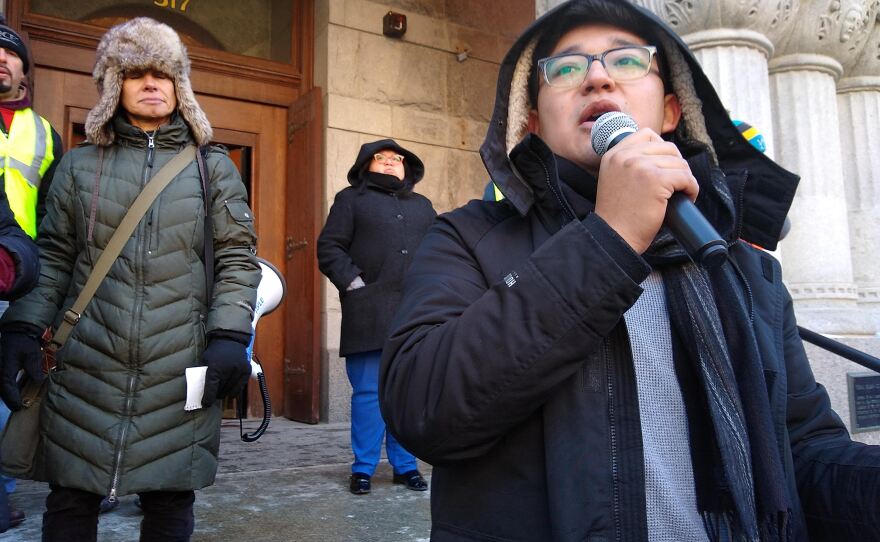The U.S. Supreme Court on Tuesday heard oral arguments surrounding the Deferred Action For Childhood Arrivals, also known as DACA. President Trump ran on a promise to do away with the program.
In Wisconsin, there are around 8,000 recipients of the program. On Tuesday, some of them gathered outside the courthouse in downtown Milwaukee in support of the program.
READ: Supreme Court May Side With Trump On 'DREAMers'
Daniel Gutierrez, a DACA recipient, was at the rally. After the rally was over, he spoke with us at a nearby coffee shop about what DACA means to him. Originally from Mexico, he says he immigrated to the U.S. at 2 years old. His parents immigrated a year before him.
"My mother was a waitress at a local Mexican food restaurant, which is still serving food 20 years later, and my father was a local foundry worker in Milwaukee," Gutierrez. "I don't remember anything of Mexico. The only memories that I have are here in the United States. This is our home."

As a child, Gutierrez wasn't aware that he and his family were undocumented. It didn't really affect him much.
But when Gutierrez was in elementary school, a time before DACA, he remembers a lawyer coming to his school. The lawyer, who was there for career day, was explaining the citizenship process.
"I think the lawyer was an immigration attorney, and he was explaining what he did in his daily job. And he asked the question: 'How many of you guys, you know, you're all citizens? You all have a U.S. passport?' And I remember in my head saying to me, 'I don't have anything of that. What is that?' So, somehow my classmates, it came to where they asked me if I had that — we were all asking each other," Gutierrez explains.
But Gutierrez wasn't able to respond because he wasn't sure.
"My parents kind of told me that we don't have the documentation like a U.S. citizen does and we can't go back to Mexico because we won't be let back in," he says.
Gutierrez has a 16-year-old sister who's currently in high school. She's a U.S. citizen. He says one of his concerns is that if DACA is ruled illegal, it would split his family.

As Gutierrez was driving to Tuesday's rally, he was listening to the news on the radio.
"It was surreal because I was driving to a rally to fight for my future. So that would mean that I would be deported, potentially, my parents would be deported because we as DACA recipients gave our information over to the government faithfully, with a promise that we were going to be protected," Gutierrez explains.
"We all have our lives here, but we could potentially be separated. And that's a fear that we live with every day."
That also means that he and parents could be separated from his sister who's a U.S. citizen.
"Her school's here, her friends are here. She has her life here. We all have our lives here, but we could potentially be separated. And that's a fear that we live with every day," Gutierrez says.
If DACA is overruled, Gutierrez and his family don't know what his day to day life will look like. Gutierrez's parents were the ones who helped him and told him to apply for DACA. He feels like they put their life on the line trying to ensure he has the ability to live in the United States legally — and now that could be taken away.
"In the application, they asked for the names of my parents," he says. "So, the government has that information and that can mean that they can use that to target individuals like myself and our families to deport. It means that at any moment if the program is taken away, I can hear a knock on my door and that can be ICE [U.S. Immigration and Customs Enforcement]."









